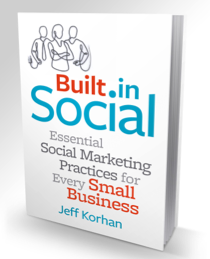
In your real life you are a stand up guy or gal who would never consider misleading anyone.
If that is true, then why are so many marketers still using a search engine optimization company to help with manipulation tactics of old to trick Google into ranking their site more highly?
The word on the street is this is becoming increasingly risky because Google is going to be coming down hard on sites that are still gaming the system.
Let’s take a look at some of these tactics and why you will want to change your online marketing behaviors to stay in the good graces of Google – now and moving forward.
Inflated Keyword Density
Many local businesses serve not only their community, but an extended community of communities within a piece of geography that expands as they grow. Obviously, they want to single out those communities by naming them on their site to be sure they and Google both make the connection that they are ready and willing to serve them.
The spammy tactic that I’ve observed on many occasions is to list every single community, while associating it with a specific keyword phrase.
For example, instead of naming the communities served, there is a long list that looks something like this: Springfield Realtor, Centerville Realtor, etc. So, that page is stuffed with dozens of mentions of the targeted keyword phrase – realtor in this example.
This is exactly what Google is going to stamp out – for the simple reason that it looks spammy and is clearly manipulative.
Don’t do this.
Manipulative Internal Links
We have all experienced manipulative internal links. This is when the anchor text (text attached to the link) suggests a particular type of destination and the link leads to something completely different – such as a sales page or the home page of the site.
This type of manipulation is unnerving! As a result, Google is sure to punish this type of behavior. Remember that the number one objective for Google is serving the user, someone that happens to be a human being.
If you are using SEO tactics to deceive your audience, you will not only irritate and lose them, you will encourage Google to minimize your site in search engine rankings.
Again, don’t do this.
Trading Links
It’s easy to succumb to the practice of trading links when you do not realize the larger ramifications.
A link is a vote of confidence, but when it is reciprocated that dilutes the recommendation. We see this everyday in politics. You contribute to my campaign fund and I’ll laud your business whenever possible. Unfortunately, the general public sees right through this.
And so does Google.
In fact, it is much easier for Google to recognize link trading because links are everything in the world of search. It’s nearly impossible for Google to miss this subtle practice – one that doesn’t make you a bad guy, but that nevertheless suggests a subtle attempt to manipulate the system.
In this case, manipulation may be too strong of a word.
Nevertheless, don’t do this.
A better approach is to play the game the way it was meant to be played. The following articles will help.
How to Prepare Your Business for Social Search
How Google is Like a Third Grader
Leave a comment below and share this with your community using any of the share buttons below – or on the little red bar at the bottom of this page.
And if you are advanced with your SEO skills, head on over to SEOMoz and watch the ten minute video on this topic to learn more.
Until next time, Jeff



